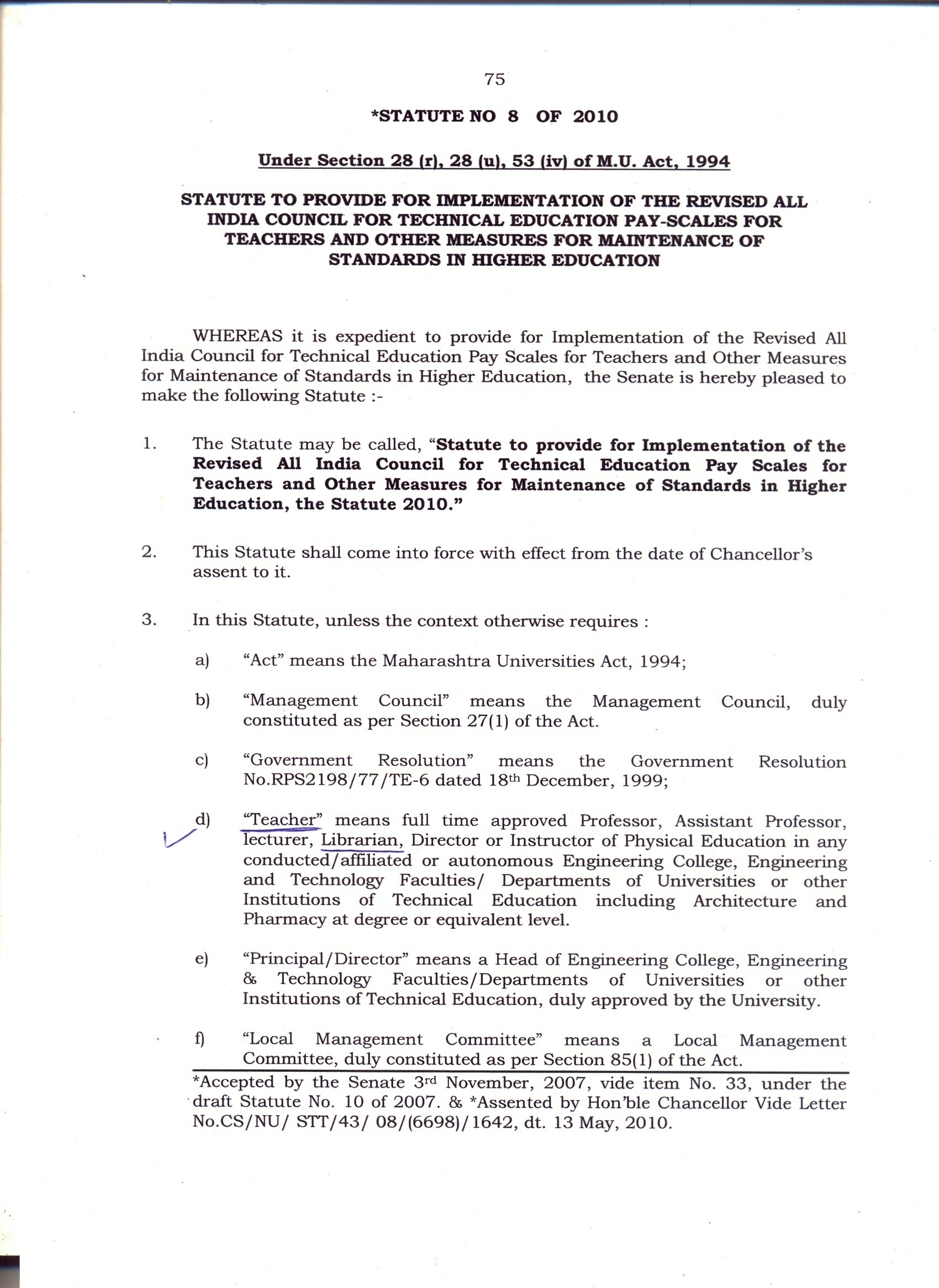1)SC gives back AICTE power to approve tech colleges
Link:
2)Apex court lets AICTE
to approve technical institutes
Link:
Apex court lets AICTE to
approve technical institutes
COIMBATORE: The
Supreme Court has given an interim order that the All India Council for
Technical Education (AICTE) will be in charge of the approval process of
technical institutions for the coming academic year as well. An interim order
issued on Thursday by the court says the AICTE can proceed in accordance with
its Approval Process Handbook.
"Approval Process Handbook (2013-14) is presently in force and the same
has been extended and made applicable for the Academic Year 2014-15 as well.
AICTE shall now proceed in accordance with the Approval Process Handbook for
the Academic Year 2014-15. Necessary orders shall be issued by AICTE within 10
days," said the order issued by the bench of justices L M Lodha and
Kurien.
AICTE officials said they were studying the order and added that they would
continue with their policies. "If we are given back approval powers we
will not keep any restrictions with regard to starting technical
institutions," said S S Mantha, chairman of AICTE. The liberal allocation
of technical institutions was one of the policies that has been heavily
criticised. Mantha's words indicate a continuity of the policies if AICTE gets
back the powers.
Former Anna University vice chancellor E Balagurusamy said the order was a
heartening development and added that AICTE was doing a commendable job and
expected the agency would get complete powers over technical and management
institutions as before.
SC gives back AICTE power
to approve tech colleges
BHUBANESWAR:
Changing its decision of April 25 last year, the Supreme Court has allowed All
India Council for Technical Education (AICTE) to have regulatory control over
technical educational institutions in the country for the 2014-15 academic
year. The latest interim order came on a petition of the Odisha Technical
Colleges' Association (OTCA) on April 17, OTCA president Biswajit Mohanty said
here on Sunday.
The SC last year had said colleges affiliated to any university do not come
under AICTE purview, thereby shrinking AICTE role in regulating technical
institutions. After the April 25 SC order, the University Grants Commission
(UGC) had decided to take over control on technical education in the country
and had framed guidelines for universities.
Allowing AICTE to have regulatory control over all such technical institutions
again, a bench of Justice R M Lodha and Justice Kurian Joseph said on April 17,
"AICTE shall now proceed in accordance with the approval process handbook
for the 2014-15 academic year in so far as members of the petitioner
association and all colleges and institutions situated similarly to the members
of the petitioners' association."
The apex court also asked AICTE to issue necessary orders in this regard within
10 days, copy of the court order reveals.
Welcoming the latest court verdict, the OTCA president said AICTE control over
technical institutions is necessary to ensure quality in technical education.
"UGC being an agency to offer grants, it had no technical expertise to
ensure norms in technical institutions. That is why UGC delegated such a role
to universities, which will dilute the quality of technical institutions in the
country," Mohanty told TOI.
OTCA, which has 62 member colleges in the state, had prayed to vest regulatory
control on AICTE on the same logic.
The colleges were particularly apprehensive about their future without AICTE.
In the UGC system, regulatory powers would have ultimately come to state
universities, resulting in increased state government meddling in their
affairs. The Odisha government, for example, had asked UGC to ensure that only
Biju Patnaik University of Technology (BPUT) be allowed to affiliate any
technical institution in Odisha.
The government had also requested UGC to ensure that no objection certificate
from the state government would be made necessary before opening a new
technical college, change of location, closure of a college and conversion of
women's technical college into co-ed college etc.


